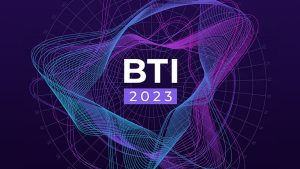
The coronavirus pandemic has thrown us into a new world of working. Entire workforces have been evacuated from their offices and while many businesses suffer, others are struggling to cope with exponential increase in demand for their services. To limit economic damage, or indeed to manage increased and new workloads, businesses and governments are turning to technology.
Of course, businesses that are seeing unprecedented spikes in customer activity are in an enviable position. However, this does present significant resourcing problems. For example, retailers whose shops have been closed have suddenly seen sales shift entirely online, at least for those who are fortunate enough to have the ability to sell online. Many contact centres, meanwhile, are experiencing higher-than-usual volumes of customer queries.
That is putting enormous pressure on these organisations’ employees, as well as their digital systems. At Expleo, we have been helping these businesses to cope by deploying robots, at an expediated rate, to allow for the increase in online and contact centre interactions. For example, we have just built a proof of concept which allows a contact centre agent to work in collaboration with a robot to create and edit account details. The robot carries out all of the repetitive tasks associated with this process and the interface gives prompts to the agent to allow for smooth – and fast – movement through the process. This therefore allows the organisation to handle a greater volume of customer requests and deliver an improved customer experience each time.
It’s not just businesses that are being overwhelmed by a sudden change in demand. As COVID-19 cases around the globe increase, healthcare systems are being tested beyond their limits as patient numbers surge. Aside from the obvious capacity issues that this creates, it is also putting a massive burden on administrative workloads. Increased appointment-making, testing, hospital admissions and mass recruitment of healthcare workers all require additional administration. To manage this, the healthcare industry worldwide is finding enormous benefit from process automation, which can supplement the work that overstretched administrators are currently facing.
As we try to imagine what our new ‘normal’ will look like as we move through these unprecedented times, there are many questions that arise. What will happen to our workforces and how they operate? Will businesses reverse the changes that they have made and go back to exactly how things were? It seems unlikely: it doesn’t make economic sense, and it would be impractical. However, we can expect that employees will start returning to the office for at least part of the working week, while sales channels may become more varied. The work involved in this alone will require certain processes to be automated to ensure employees remain focused on the business-critical tasks that will help to future-proof their organisation.
Businesses are getting a taste of the benefits that process automation can bring. As we have seen during this crisis, robots are not replacing humans; they are taking on the time-consuming tasks that are distracting people from important tasks or overburdening already-stretched teams. We therefore expect that a combined workforce – of digital and human teams working in tandem – will become more commonplace, but less daunting for businesses and their employees. This integrated and intelligent workforce will change how we do our jobs; but as has been evident over the past few weeks, change is the only thing we can be certain of.
Want to know more about how we are helping businesses with bespoke and rapid process automation solutions? You’ll find me at Rebecca.keenan@expleogroup.com
Rebecca Keenan, Head of Process Automation, Expleo Ireland
This is the third in a series of blogs from our team at Expleo Ireland, which we hope will provide you with helpful advice and insights for now and into the future. Catch up on Phil Codd, Managing Director of Expleo Ireland’s piece about rising to the challenges of the current emergency and David McGrath, Director of Business Agility’s advice on change reaction. Next up, Head of Marketing Siobhán Smith will address how to manage crisis comms and important factors for communication as we move forward following the pandemic.






